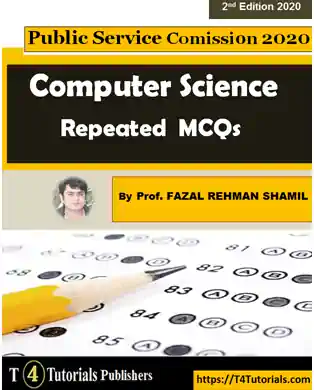1. When we input two values 0 and 1 which of the following gates would output 1?
A. OR gate
B. NAND gate
C. AND gate
D. both a and c
2. one nibble= ________ bits
A. 16
B. 8
C. 4
D. 2
3. flip-flops that are unlocked are called
A. Transition tables
B. register
C. Latches
D. None
4. Which is not equal to x?
A. X NAND 1
B. X NOR X
C. X NAND X
D. X NOR 1
5.What value Excess-8 code assigns to “-8”?
A. 0000
B. 1100
C. 1110
D. 1000
6. How many rows are needed in the primitive flow table for the gated latch?
A. 1 row
B. 3 rows
C. 5 rows
D. 7 rows
7. Which gate is added to the inputs to convert OR gate into NAND gate?
A. XOR
B. AND
C. OR
D. NOT
8. LUT What is the acronym for LUT?
A. Local User Terminal
B. Least Upper Time Period
C. Look Up Table
D. None of given options
9. Final stable state in all cases is ____________.
A. undefined
B. same
C. changed
D. inverted
10. Which gate is equal to the EXCLUSIVE NOR gate if we put the inverter on it?
A. NAND
B. AND
C. XOR
D. OR
11. The three basic gates are
A. NOT, NOR, XOR
B. OR, AND, NAND
C. AND, NAND, XOR
D. NOT, OR, AND
12.In timing problem of _______________ complexity of asynchronous circuit is involved.
A. inputs
B. feedback path
C. clock pulses
D. outputs
More MCQs of Digital Logic Design (DLD)
- SET 1: DLD MCQs with answers (dld mcqs with answers)
- SET 2: DLD MCQs (dld basic mcqs)
- SET 3: DLD MCQs (solved mcqs of dld)
- SET 4: DLD MCQs (dld repeated mcqs)
- SET 5: DLD MCQs (dld importan mcqs)
- SET 6:DLD MCQs DLD Solved MCQs Answers PDF
